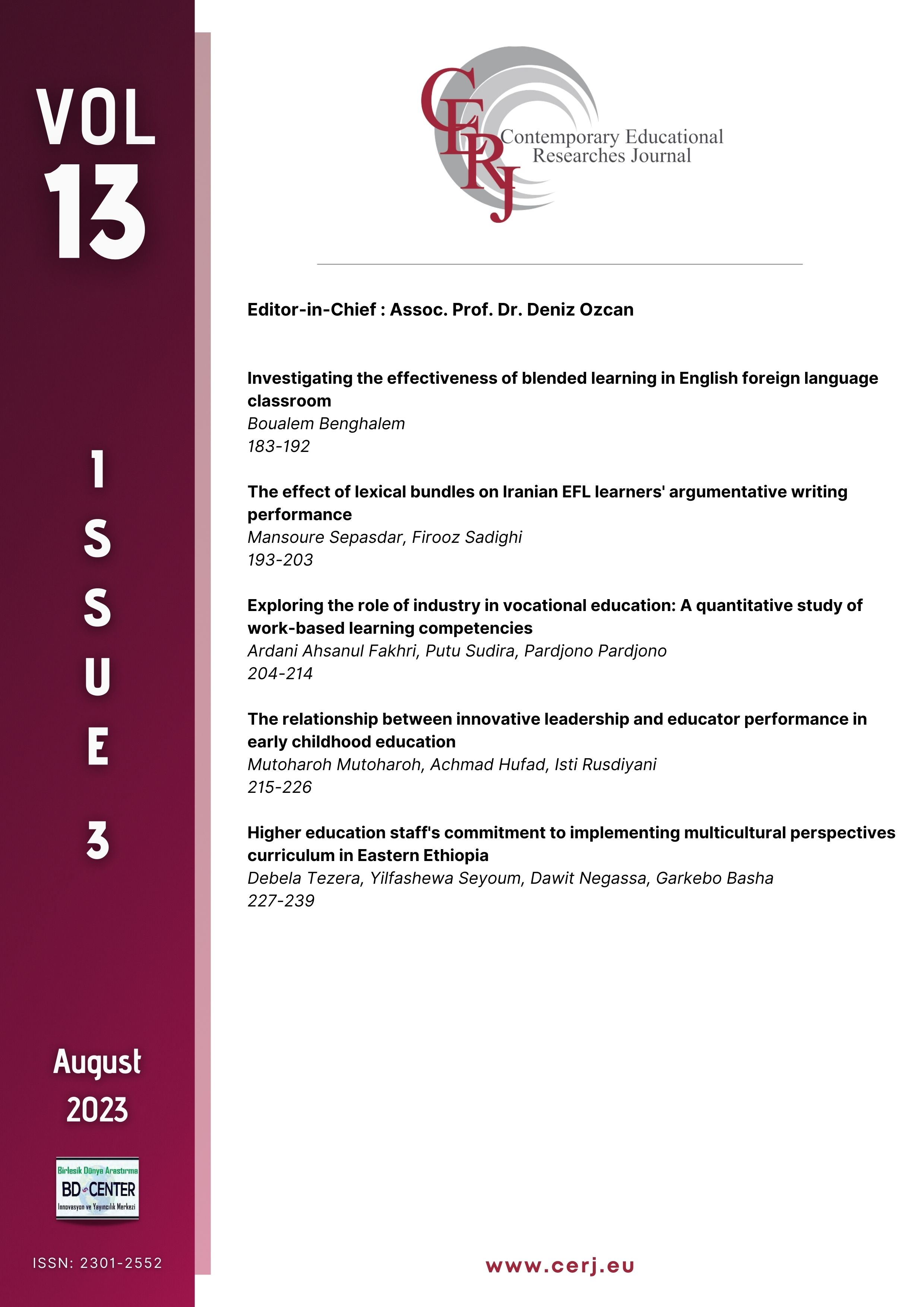Investigating the effectiveness of blended learning in English foreign language classroom
Main Article Content
Abstract
The COVID-19 pandemic has forced educational institutions worldwide to explore new learning modes, including blended learning, which combines face-to-face instruction with online learning. Despite the potential benefits of blended learning, its effectiveness is influenced by several factors that can pose challenges, particularly in terms of student outcomes. This study aimed to investigate the attitudes of third-year English students toward blended learning. A total of 45 students completed an online questionnaire, and three teachers participated in interviews. Results indicated that students had mixed attitudes towards blended learning and generally preferred face-to-face instruction over online learning. Additionally, the study found that while some teachers expressed negative attitudes toward blended learning, others recognized its potential effectiveness and importance. These results highlight the need for educators to consider the challenges and advantages of blended learning and provide appropriate support and resources to help students adapt to this new mode of learning.
Haut du formulaire
Bas du formulaire
Keywords: Attitude; blended Learning; Covid-19; E-learning; face-to-face instruction; learning English.
Downloads
Article Details

This work is licensed under a Creative Commons Attribution-NonCommercial-NoDerivatives 4.0 International License.
Authors who publish with this journal agree to the following terms:
- Authors retain copyright and grant the journal right of first publication with the work simultaneously licensed under a Creative Commons Attribution License that allows others to share the work with an acknowledgement of the work's authorship and initial publication in this journal.
- Authors are able to enter into separate, additional contractual arrangements for the non-exclusive distribution of the journal's published version of the work (e.g., post it to an institutional repository or publish it in a book), with an acknowledgement of its initial publication in this journal.
- Authors are permitted and encouraged to post their work online (e.g., in institutional repositories or on their website) prior to and during the submission process, as it can lead to productive exchanges, as well as earlier and greater citation of published work (See The Effect of Open Access).
